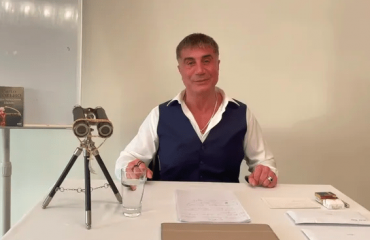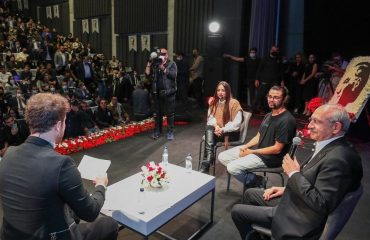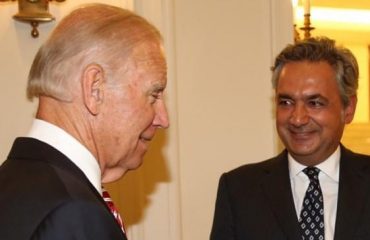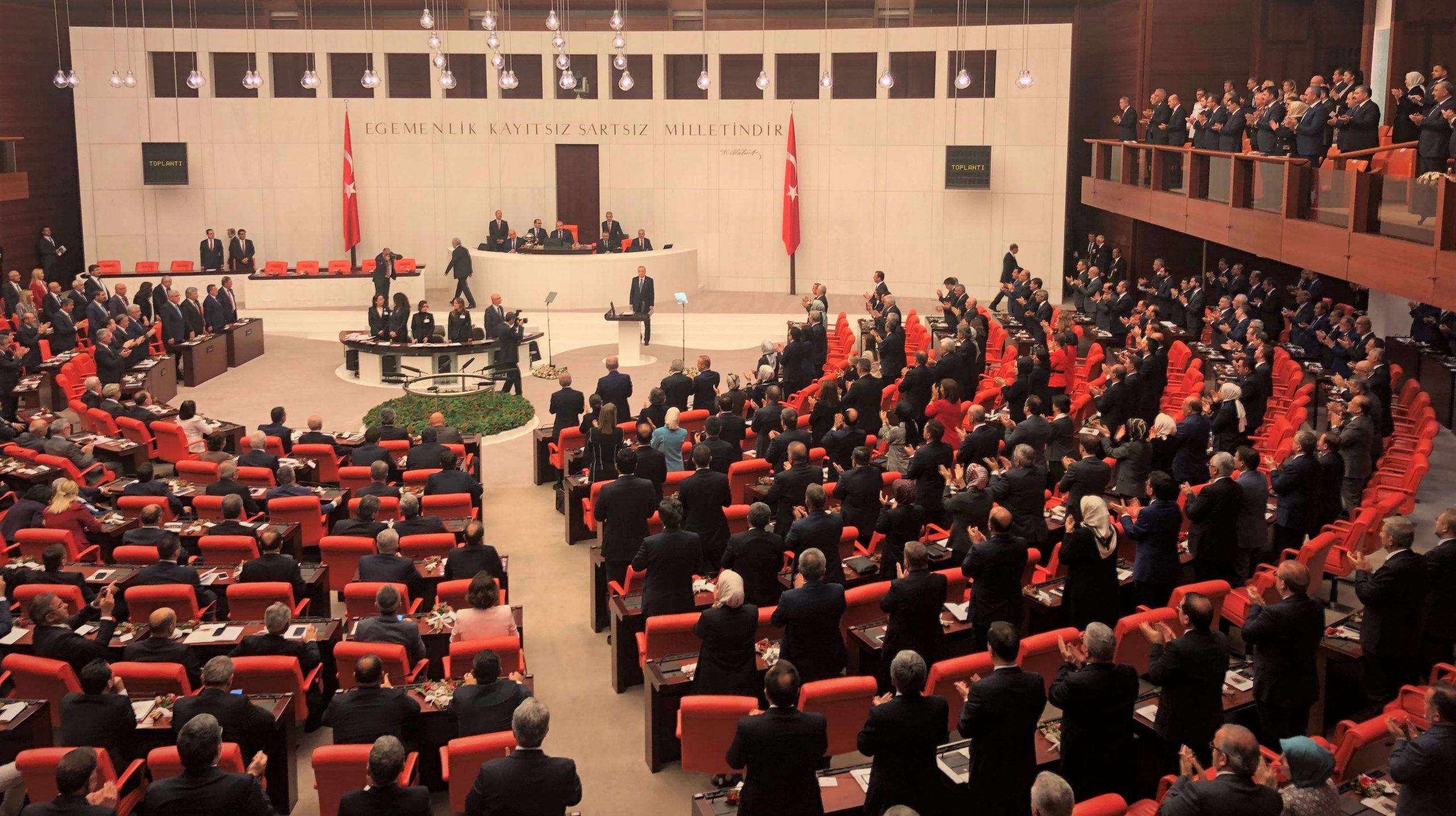
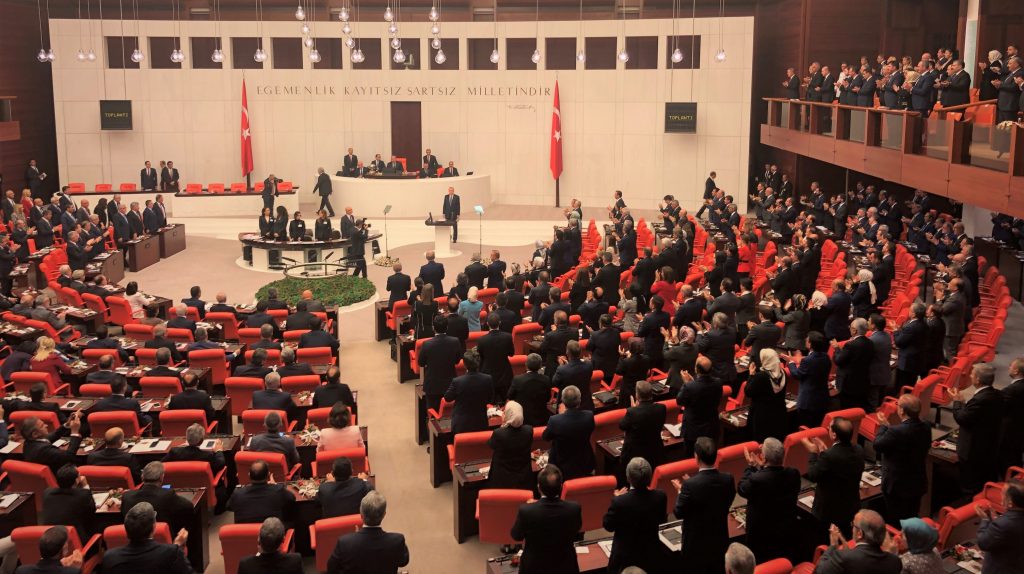
The presidential race will take place between Erdoğan and Kılıçdaroğlu. Now the race for parliamentary seats has begun. Candidate lists are on the desk of the leaders.
The general fuss over presidential candidate nominations in Ankara seems to settle down after Kurdish-issue focused People’s Democracy Party (HDP) and its Labor and Freedom Alliance announced that they would not nominate any presidential candidate.
While their indirect support to six-party opposition alliance’s candidate Kemal Kılıçdaroğlu stirred yet another debate, the other 11 candidates, who claimed that they can collect 100 thousand signatures to be able to participate the race, have collected far less support than they expected on the first day of the one-week poll.
There are two options for an individual to be able to be nominated for presidency: either to have support from a parliamentary group, or to collect 100 thousand signatures and pay the designated fee. With the initial numbers indicated, the presidential race will likely be between the ruling People’s Alliance’s presidential candidate Tayyip Erdoğan and Nation Alliance’s candidate Kılıçdaroğlu.
Presidential runners settled
Now, the political backstages are in a rush to prepare the candidate lists for the parliamentary election. Leaders are busy with determining who will be the parliamentary representative from where.
Before we get to the lists, we should share two important details about the election process.
The first is HDP Co-Chair Mithat Sancar’s announcement on Halk TV on March 22 that they will enter the elections under the Green Left Party (YSP). The main reason for this is the ongoing case at the Constitutional Court to shut down the HDP. The court had rejected HDP’s request to postpone the court proceedings after the election and ruled for the HDP to give its oral defense until one day after April 10, when the candidate lists of MPs would be submitted to the Supreme Board of Elections (YSK). In other words, the day after the HDP submitted its lists, the top court may impose the closure of the party and political ban on the candidates.
“No remedy is exhausted on legitimate grounds”
The same risk now applies to the YSP. Therefore, HDP/YSP candidate lists will probably be based on names that are not under the threat of a political ban.
It is paradoxical that the AKP, which owes its rise to power not only to the economic crisis, administrative shakiness and injustices, but also to its opposition to judicial pressure on politics, is now pinning its hopes on the closure case at the Constitutional Court, which was initiated thanks to its partner Nationalist Movement Party (MHP).
The HDP, accustomed to closure cases, has also developed measures against it. As Türkiye’s former President and Prime Minister Süleyman Demirel famously said: “remedies are not fully exhausted within legitimate grounds.”
Secondly, HDP’s imprisoned former co-leader Selahattin Demirtaş told Şirin Payzın, also on Halk TV, that “Erdoğan is a black page that is definitely closed for Kurds”. This statement indicates that the political tide has turned slightly in opposition’s presidential candidate Kılıçdaroğlu’s favor. It is noteworthy that CHP-oriented Halk TV opened its screens more to the HDP after Kılıçdaroğlu’s move.
Left’s unity against Erdoğan
In the HDP or now the YSP, the candidate lists may primarily consist of names that are not under the threat of a political ban by the judiciary. Sancar also mentioned the effort to expand the Labor and Freedom Alliance, which includes socialist parties such as the TİP and the Labor Party, and mentioned the name of the Left Party. The Left Party had previously spearheaded an alliance called the Socialist Power Union. The aim is to prevent a vote split in the left against Erdoğan.
As it can be recalled, days before his presidential candidacy announced, Kılıçdaroğlu had held talks with the TİP and the Left Party after IYI Party leader Meral Akşener left the Six-Party Table for three days on March 3.
In Ankara, there is a three-dimensional chess game against time: 51 days to go until the elections and the leadership is already hard at work on the candidate lists.
Three-dimensional chess against time
Let’s look at the situation in the People’s and National alliances.
Erdoğan’s job is easier than Kılıçdaroğlu’s; at least he does not have to make room for his partners in the Six Table other than the İYİ Party.
Therefore, let’s start with the IYI Party.
The waters have not completely calmed down in the IYI Party yet, but Akşener is likely to regain control over the parliamentary lists – and perhaps even more strongly than before. It is not possible to consider Yavuz Ağıralioğlu’s outburst over HDP alliance’s covert support to Kılıçdaroğlu yesterday as the opinion of all the “nationalist brothers” in the party, nor is it possible to say that it will shake the political balances in Ankara.
On the same day, IYI Party’s Koray Aydın told Ruhat Mengi in Sözcü that the main issue was to get rid of Erdoğan. As Ağıralioğlu was speaking, İYİ Party’s Müsavat Dervişoğlu, CHP’s Engin Özkoç and other Six Table delegations were submitting Kılıçdaroğlu’s nomination petition to the YSK.
Akşener is expected to form the lists according to who took constructive and who took destructive stances during the process of leaving and returning from the Six Table, who stood by her and who stayed away.
Fuat Oktay surprise from Erdoğan
President Erdoğan was the first to open his hand on the candidate lists.
On March 22, he announced on NTV live on the evening of March 22 that 17 ministers in his cabinet would be parliamentary candidates and metropolitan mayor candidates. But the real surprise was when he named Vice President Fuat Oktay.
Fuat Oktay would now run “wearing the political jersey”.
This means that Erdoğan, who considers his re-election to the presidency as a guarantee, (and there is no hesitation about this in the AKP lobbies, estimates start from 52-53 percent) he was considering another name as Vice President. At the last meeting on March 20, could he have convinced his partner MHP leader Devlet Bahçeli? Or is he considering his spokesperson İbrahim Kalın, who has been his right-hand all this time, as his new deputy? Since Binali Yıldırım applied for a parliamentary seat “at the last minute”, it is clear that he is not considering him as his deputy.
Relatively speaking, Erdoğan’s most serious problem with the AKP’s candidate lists is the “three consecutive terms in parliament” limit. There are 56 deputies who are subject to this limit, including Yıldırım and Hayati Yazıcı.
Kılıçdaroğlu and candidate lists
Kılıçdaroğlu has the most difficult job when it comes to candidate lists. With Akşener closing the door, he is also responsible for nominating the names that the other four parties in the Table of Six want to make members of the Turkish Grand National Assembly.
Until now, the CHP used to hold primary elections or tendency polls to a certain extent. But this time, due to the alliance effect, Kılıçdaroğlu has all the powers in his hands.
Although the fact that members of the alliance are nominated as CHP candidates for electable seats has caused problems within the CHP, no one has raised too much voice so far with the approach of “as long as Erdoğan cannot be elected”.
On the other hand, Kılıçdaroğlu has reportedly asked some CHP members to apply for parliamentary candidacy, while others were told not to apply. If Kılıçdaroğlu wins, we may see names such as Faik Öztrak and Muharrem Erkek, who took an active role in the table of six, in his cabinet.
Another issue in Kılıçdaroğlu’s preparation of the candidate lists is whether there will be enough space for female deputy candidates. It is known that Secretary General Selin Sayek Böke is insistent on this issue.
Therefore, it can be said that the three-dimensional race against time in Ankara is also going on within the CHP.
